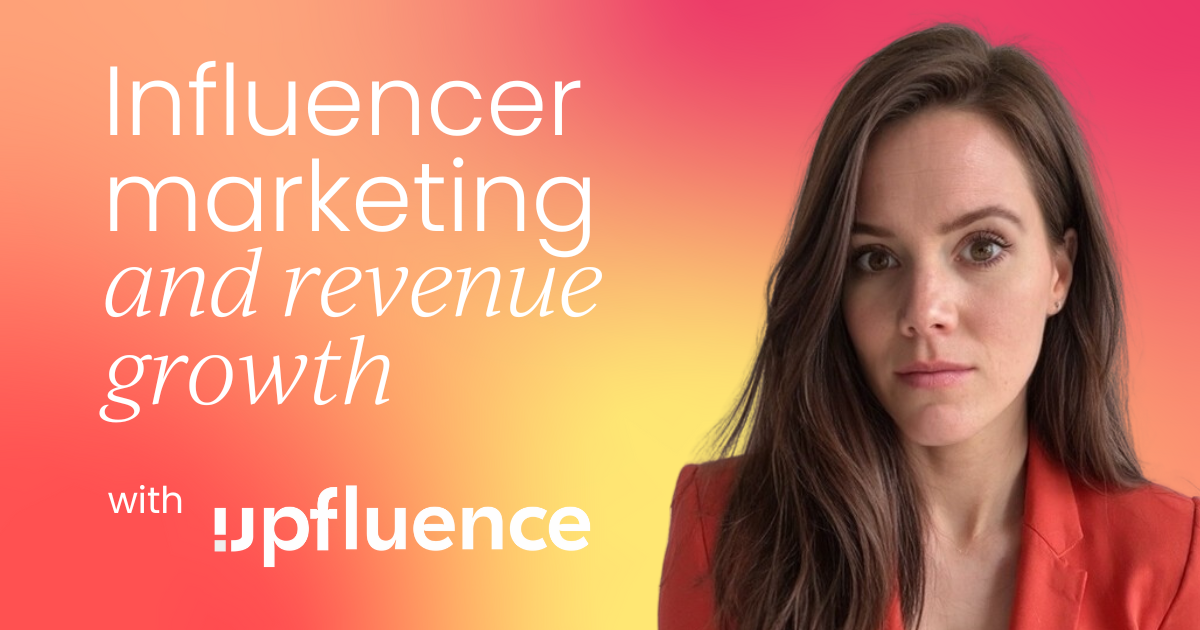Have you ever dreamed of sitting in the executive chair, steering the ship of a major company? If so, you’ve come to the right place.
Today, we're going to chart the course from marketing manager to the C-suite – a journey many dream of, but few complete.
The path to the C-suite is no walk in the park; in fact, only a small fraction of marketers ever reach those lofty heights. But fear not! I'm here to be your guide, sharing hard-won insights from my own career and from trailblazers who've successfully made the leap.
As part of The Product Marketing AI podcast, which I launched a couple of years ago, I've had the pleasure of speaking with people who’ve progressed from marketing manager roles all the way to executive and leadership team levels.
Here, I'm going to outline five of my interviewees’ career paths.
Before we dive in, a quick reminder that no two people's journeys in marketing are the same. You can look at as many case studies as you want, but all of those are going to be context-specific, location-specific, and even industry-specific. Still, we can all stand to learn something from each of these stories.
Let’s get into it.
Five inspiring career journeys for aspiring CMOs
PMM to EVP of Products
The first person I want to highlight today is Becky Trevino. She moved from a senior product marketing role into the position of EVP of Product, which is, from what I've seen, the road less traveled.
Becky won the PMA Leader of the Year award in 2022, and she has some high-level experience in the product marketing world.
The quote that really stood out to me from our discussion was about understanding the problems her stakeholders in the organization were having, and then marrying that with the organizational design she was pitching to solve those problems.
That meant that as she took on new areas of responsibility, she was able to showcase the value she was driving throughout the organization.
Becky highlighted three key areas that you need to focus on to progress to a leadership team level:
- Picking a manager: This is hugely underrated from a career progression point of view. Five years ago, Becky started working for a fantastic manager at Snow Software. That manager continued to ascend the organization and brought Becky along with her. Every time the manager got a promotion, Becky followed, taking on more roles and responsibilities.
- Being board-level ready: Anyone who's helped a marketing leader or CMO prepare a board pack knows how stressful it is. Everything has to be perfect. You have to tell the right story, bring the right numbers, and be ready for everything that execs are going to throw at you. Being able to pull all that material together and present it in a coherent and exciting way is vital.
- Solving problems: As Becky's career grew, she was able to take on competitive intelligence and pricing and packaging. All of this helped her grow into the role of EVP of Products.
Becky's journey is a wonderful case study of how to go from a product marketing role into a product management role at the executive level.
PMM to VP of Product Marketing
The second example I have today is Harvey Lee, Product Marketing Alliance’s former VP of Product Marketing. In the picture below, he's promoting his book, Backstage Pass. I'm very happy to say that I have a copy of the book here with me, and I encourage everyone reading this to buy it too.
Some things Harvey said really resonated with me. He emphasized that there are no shortcuts in writing a book, and there are no shortcuts in product marketing as a whole. There are tools you can use to make your life easier and speed things up, but a lot of it is just really hard work.
Harvey highlighted three key areas for his career growth:
- Building a brand: Harvey worked on some massive launches for Xbox. These were B2C projects with huge exposure and pressure. He learned a ton of lessons and started to build a personal brand. This is crucial for people early in their career journey. Choose a brand that's going to give you brand recognition and name recognition in the industry.
- Writing skills: He highlighted the importance of being able to write. Tools like Grammarly certainly help you be succinct and grammatically correct, but being able to write effectively – whether that’s for your collateral, website, blog posts, or positioning documentation – is paramount. How you write and tell that story is super important.
- Communication: Anyone who's seen or spoken to Harvey in person knows that he's a wonderful communicator. He uses those skills to tell stories, both visually and in written form.
PMM to Senior VP of Marketing
The next person I want to spotlight is Jill Roberson, a former colleague of mine who has progressed from a product marketer to a Senior VP of Marketing. She works for Velir, a digital agency based in the US.
The quote that really stuck with me from speaking to Jill was about how technology has forced her to stay informed in the marketing tech space, and AI has pushed her to be a consummate learner.
This is huge for anybody who wants to progress in their career. You have to be willing to learn and take on new challenges, just like Becky did in her role at Snow Software. Tackle new problems, take on new remits, and do them well.
Jill highlighted three key areas that have been pivotal for her career progression:
- Presentation skills: Being able to get on stage, command an audience, and really wow people with your content and delivery is a fundamental skill for anybody who wants to be in a leadership team position, either in product marketing or as a CMO. It's massively important to take all the opportunities you can get to present internally and externally.
- Knowing your numbers: Tracking and reporting information is crucial for product marketers today. We need to move closer to revenue generation, win rate percentages, pipeline, and website conversion rates. Jill's ability to track, report, and communicate the value she brings led to her promotions from Director of PMM to VP of Digital Marketing, and then to Senior VP of Marketing.
- Lifelong learning: From a technology perspective, Jill is a consummate learner. Everybody needs to bring that mindset to their career. It's not about getting stuck on every latest fad, but being aware of new tools and skills and how you can apply them to your career.
PMM to CMO
Next, we've got to the PMM to CMO path. The person I want to highlight here is Elliott Rayner, who, when I interviewed him, was the CMO at ARION. He’s recently moved to OWOW Agency, where he’s the Director of Marketing and Growth.
Elliott's had a phenomenal journey in his marketing career. He's worked at really cool brands like Adidas, for example, and has held senior roles there in marketing and product marketing.
Elliot outlined three key areas that have been key for his career progression:
- Moving from a big brand to a small brand: If you’re in a senior role at a large company, one way to make the jump to CMO is by moving to a smaller brand – somewhere that's a little bit scrappy or has a smaller team and budget. These smaller brands present huge opportunities for you to put your own stamp on things and drive value for the business.
- Focus on customer success: Working closely with the customer success team is essential, especially for a subscription business where you need to be very aware of churn. While sales enablement is a huge part of product marketing as a whole, Elliot believes that customer success is an area that needs to be more tightly monitored.
- Being a T-shaped marketer: Elliot has developed a really broad set of skills. This T-shaped approach – having a broad knowledge across many areas of marketing while also having deep expertise in specific areas – has been key to his success.
PMM to CEO
The fifth example I'm going to share is the path from PMM to CEO. Derek Osgood, who many people in the product marketing space will know, is the founder and CEO of Ignition, a go-to-market platform with the PMA stamp of approval. Ignition has recently completed a fundraising round, and Derek has done an absolutely phenomenal job in growing his business and brand.
Derek highlighted three key areas that have been crucial for his journey from product marketer to CEO:
- Crafting a pitch: You need to be able to pull together a presentation and tell a great story, both with numbers and words. When you can do that, you can bring people on a journey with you. This skill is essential for convincing investors, partners, and customers to believe in your vision.
- Fundraising: If you want to grow in this market, you need to be able to raise money. You have to use all of your contacts and skills to bring in additional support and staff who will help you get to the next level.
- Resilience and health: Derek told me that he literally doesn't think he'd be able to run a company if he wasn't also investing heavily in his physical well-being. That means getting to the gym, getting outside, and watching what he eats. C-suite jobs are tough. You have to bring your best self to work every day, and you can only do that by prioritizing your health.
Key takeaways
So, what are the commonalities we see across those five journeys?
- Relentless focus on learning: If you want to dodge the Peter principle and keep delivering at every stage of your career, you have to stay on top of technological developments, evolving industry practices, and changes in the market.
- Luck: All the people I interviewed would say that luck certainly played a part in their success - being in the right place at the right time with the right connections – but you have to put yourself out there for those lucky events to happen. Those serendipitous meetings at product marketing summits and events are huge.
- Great managers: All of the people I mentioned have had great managers who’ve pushed them forward in their careers. I've also been fortunate to work for phenomenal managers who have had a significant impact on my career. Personal life events, like health issues or bereavement, can greatly affect our work; having a supportive manager during these times is a game-changer.
- Willingness to take risks: This is a huge part of career progression. Not every career move you make is going to work out. I think you either win or you learn when it comes to taking on new roles.
This article was originally published here, at Product Marketing Alliance.






.png)









 Follow us on LinkedIn
Follow us on LinkedIn




